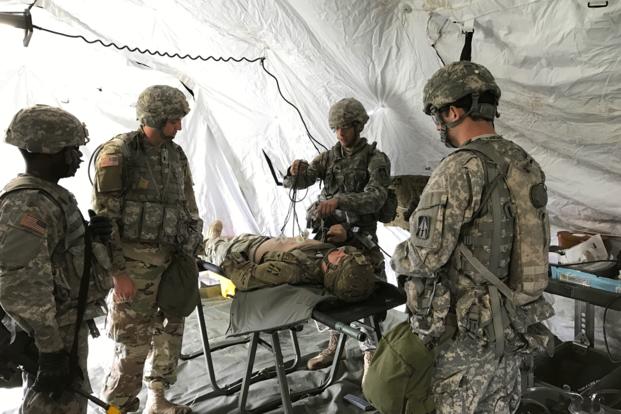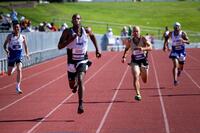When Laurie Finlayson's 25-year-old Marine son died during a battalion training run in 2013, she asked to see a copy of the electrocardiogram he received before shipping off to boot camp.
She was surprised to learn the test wasn't part of his medical screening.
"They do three days of medical for people who enlist, but they don't do an EKG to check their hearts?" Finlayson said. "I was just dumbfounded."
Lance Cpl. David Finlayson's autopsy showed he had an enlarged heart, as many athletes do, she said, but it was otherwise normal. That pointed to an electrical problem, which can cause sudden cardiac arrest.
"Your heart goes into a bad rhythm. It can either be too slow or too fast, but it's not effectively pumping blood -- it's just quivering," Finlayson said. "So, the person just drops. It's essentially like their heart stops."
Now, Finlayson wants to help prevent others from suffering the same loss her family experienced. She and her husband, John, started the Lion Heart Heroes Foundation in honor of their son to raise awareness about sudden cardiac arrest and push the military toward better screenings for new enlistees.
"They can do more," she said.
Sudden cardiac arrest affects about 7,000 children under the age of 18 annually, according to the American Heart Association. That has led some doctors to recommend students get electrocardiograms, or EKGs, before participating in high school or college sports.
Since the military often attracts the same crowd, Finlayson said new enlistees and officer candidates should be screened too.
"We hope that [EKG] screening will become part of the medical protocol at the Military Entrance Processing Stations," her foundation's website states. "Then these undiagnosed heart problems can be discovered before young recruits join the service, giving them the opportunity to get their hearts fixed."
Sudden deaths during military physical training are rare, but strike each year. Within the last two weeks, a 30-year-old Marine died during a unit run at Camp Lejeune in North Carolina and a 29-year-old Nebraska National Guardsman died during fitness training at a local armory.
This week, the Navy also issued a host of guidelines for fitness test participants to be more closely monitored for signs of distress. That followed a safety review after 18- and 20-year-old recruits died within an eight-week period while taking the Navy fitness test at boot camp.
While those deaths remain under investigation and the causes of each remains unknown, Finlayson said it's vital that young people being asked to carry out physically demanding jobs be properly screened.
A Pentagon spokeswoman declined to comment on the investigations since they remain ongoing, but said there are no plans to change the way medical screenings are conducted.
"The Department offers our most sincere condolences to the families of these outstanding recruits for their profound loss." Air Force Lt. Col. Carla Gleason said. "... The Department continuously reviews accessions policies; however, there is no change in policy addressing EKGs at this time."
The physical examinations applicants go through at Military Entrance Processing Stations are "head-to-toe evaluations of the applicant," said Lt. Col. John Balman, a doctor with MEPS.
That includes a blood pressure and heart-rate measurement, he said. And per a federal regulation, "auscultation for heart sounds will include auscultation at the mitral, tricuspid, aortic and pulmonic valve areas," he said.
"Heart murmurs suspicious for disease require echocardiogram and cardiology referral," Balman added.
Applicants are instructed to fully disclose any medical history of pain or pressure in the chest, palpitations, pounding heart, abnormal heartbeat and any prior abnormal EKGs, he said.
But based on advice of Defense Department medical experts, "only applicants who are over the age of 40 or who present with a suspicious finding on history or physical examination at the MEPS undergo an EKG when indicated," Balman said.
Nearly 2,000 applicants were disqualified at MEPS for cardiac conditions between October 2016 and September 2018, he said.
For those who want more robust screenings before boot camp, Finlayson said organizations around the country provide EKGs designed to identify problems in young people for free or at discounted rates. Those locations can be found at ScreenAcrossAmerica.org.
"I would suggest that parents whose kids want to enlist do one of these screenings and get their hearts checked," she said.
The Lion Heart Heroes Foundation has also donated portable defibrillators to military bases, including Marine Corps Base Hawaii, where David Finlayson died.
-- Gina Harkins can be reached at gina.harkins@military.com. Follow her on Twitter @ginaaharkins.














